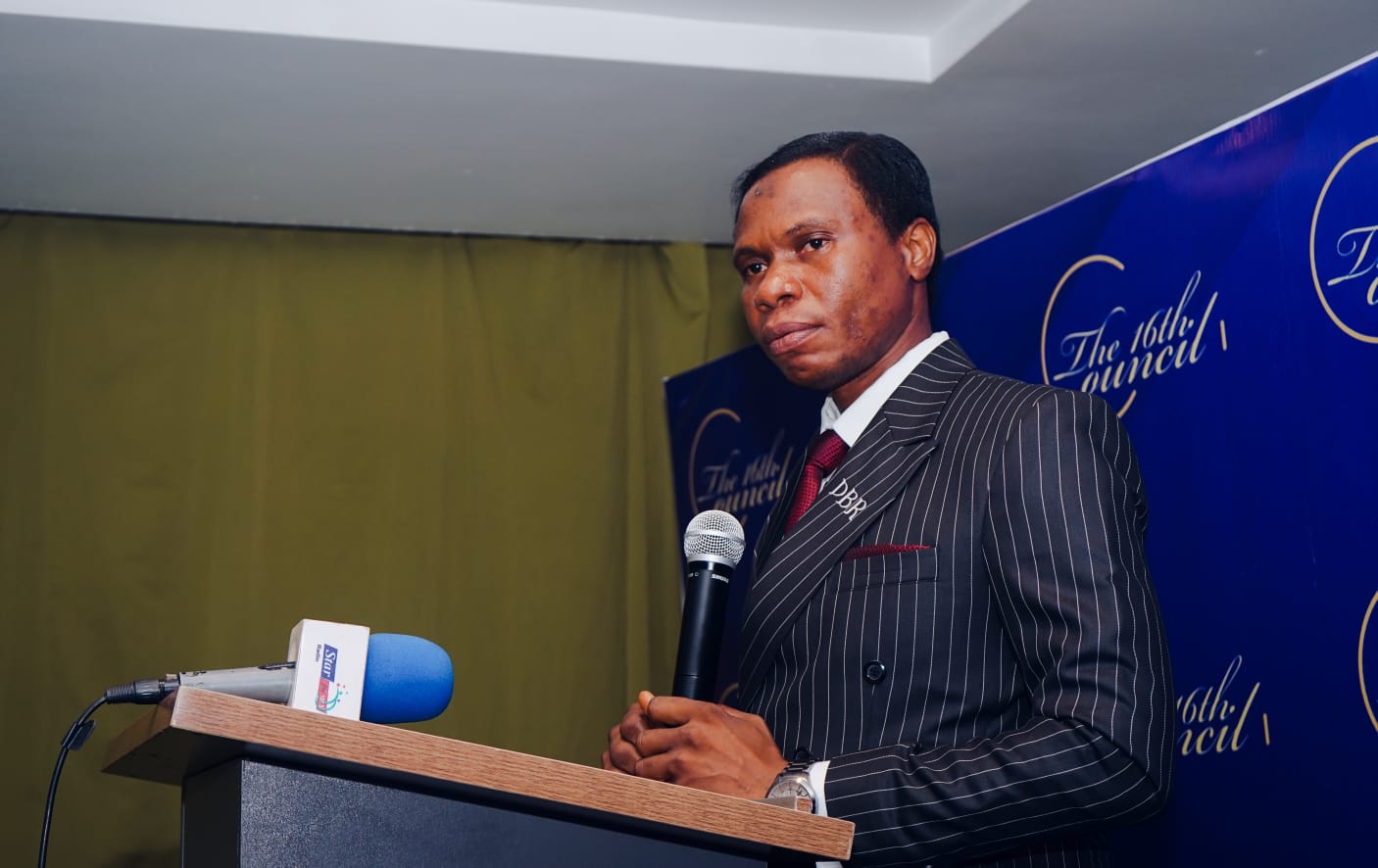
Keynote Speech: Mapping the Future of Nigeria’s Economic Development Amidst Uncertainty
Introduction
Distinguished guests, esteemed colleagues, and partners, it is both an honor and a necessity to engage in this important conversation about the future of Nigeria. We find ourselves at a crossroads where global volatility, domestic challenges, and regional instability shape the economic landscape in which we operate. But rather than view these as insurmountable challenges, we must see them as opportunities to reform, restructure, and reclaim Nigeria’s path toward sustainable development and economic resilience.
Global and Domestic Context
The Nigerian economy is not isolated from global events. Geopolitical conflicts, from the war in Ukraine to tensions between major world powers, have deeply affected global supply chains, energy prices, and financial stability. Domestically, we face compounded challenges, including security threats, inflationary pressures, policy inconsistency, and structural inefficiencies. These issues are not just abstract economic data points—they affect the livelihoods of every Nigerian, from the farmer in Sokoto to the entrepreneur in Lagos.
Key Economic Challenges
1. Inflationary Pressures
As of September 2024, Nigeria’s inflation rate surged to 32.70% according to the National Bureau of Statistics,reflecting a multifaceted crisis driven by rising energy prices, supply chain disruptions, and structural deficiencies in key sectors like agriculture and manufacturing. The removal of fuel subsidies, a necessary fiscal reform, has further exacerbated inflation, pushing up transportation and food costs. The Central Bank’s response—tightening monetary policy through interest rate hikes—has done little to address these deep-rooted issues.
The burden of inflation is disproportionately felt by the most vulnerable segments of society. Higher food prices mean less disposable income for households, and as we see prices soar, businesses struggle with rising operational costs, which stifles growth and increases unemployment.
2. Debt and Fiscal Policy
Nigeria’s debt burden continues to grow, with public debt now estimated at ₦87 trillion (USD $113 billion) as of 2023. The government has had to increase borrowing to finance critical infrastructure, fund social programs, and cover the deficit created by fluctuating oil prices. While these are necessary investments, the rising debt-service ratio—now consuming over 90% of government revenues—limits the fiscal space for further investments in education, healthcare, and technology.
Without a decisive shift in fiscal policy, Nigeria risks falling into a debt trap where servicing loans crowds out investments in sectors essential for long-term growth. Moreover, the country’s current debt profile—both domestic and external—raises concerns about sustainability, especially as global interest rates rise.
3. Policy Inconsistency and Investment Hesitancy
Businesses, both local and foreign, need predictability. However, policy inconsistency in Nigeria, especially in sectors like foreign exchange management and trade, has eroded investor confidence. Foreign direct investment (FDI) inflows have dwindled, with many investors adopting a “wait and see” approach due to the unpredictability of government decisions.
The oil and gas sector, which accounts for nearly 90% of foreign exchange earnings, continues to suffer from underinvestment and underperformance. Meanwhile, non-oil sectors such as technology, manufacturing, and services, although growing, require robust policy frameworks to fully realize their potential.
4. Security Concerns
Economic development is inextricably linked to security. Persistent insecurity, from insurgencies in the Northeast to banditry in the Northwest, has hampered economic activity and growth. Agriculture, a sector that employs over 70% of Nigeria’s workforce, has been particularly affected. Farmers are often unable to cultivate their lands, and trade routes are frequently disrupted, leading to food shortages and higher prices.
Moreover, the continued unrest in the Niger Delta threatens oil production and infrastructure. If Nigeria is to progress economically, it must first address these security concerns through targeted investments in military capabilities and community-driven peace initiatives.
Strategic Policy Recommendations: Navigating Uncertainty
While these challenges are significant, they are not insurmountable. What is required is a bold, consistent, and long-term vision that addresses the root causes of our economic vulnerabilities. I propose the following key strategies to secure Nigeria’s economic future:
1. Economic Diversification
The Nigerian economy must break its overreliance on oil revenues. Agriculture, technology, and services are sectors with immense potential for driving economic expansion. However, for diversification to succeed, we need more than just policies; we need implementation. The full activation of the African Continental Free Trade Agreement (AfCFTA) can serve as a powerful tool in expanding Nigeria’s trade portfolio and deepening intra-African commerce.
We must invest in technological innovation, infrastructure, and skills development, especially for the youth, to position Nigeria as a key player in the global digital economy. Furthermore, agriculture, which employs millions of Nigerians, must be modernized through the use of technology, better access to markets, and government incentives.
2. Fiscal Discipline and Debt Management
Nigeria must adopt a more disciplined approach to fiscal management. Reducing our dependence on borrowing to finance recurrent expenditures should be a priority. Instead, we must attract more private sector investments through public-private partnerships (PPPs) that can drive infrastructure development without overburdening government coffers.
Debt restructuring, improved tax collection, and curbing wasteful spending must be at the forefront of fiscal policy reforms. Additionally, subsidies should be better targeted to protect the most vulnerable, while ensuring that our limited resources are used more efficiently.
3. Enhancing Security for Economic Growth
Security is the bedrock of development. Without it, no amount of economic reform can succeed. The government must continue to invest in security initiatives, but these efforts must be both holistic and community-driven. Dialogue with affected communities, enhanced military operations, and economic empowerment in conflict zones are key to breaking the cycle of violence.
Moreover, the Niger Delta region’s peace must be sustained to ensure continued oil production, while diversification plans take effect.
4. Creating a Stable Policy Environment
Nigeria needs a predictable and transparent policy environment. Investors need clarity on exchange rates, tax policies, and trade regulations. This requires a coordinated effort between fiscal and monetary authorities to align policies and build confidence in Nigeria’s economic management.
Consistent policies will attract foreign direct investment, enabling growth in key sectors such as energy, technology, and manufacturing. This consistency must also extend to sectors like education and healthcare, where investments can create a healthy and educated workforce capable of driving future growth.
Conclusion: A Call to Action
Ladies and gentlemen, the road ahead is undoubtedly challenging. But with every challenge comes an opportunity for transformation. Nigeria has the potential to rise as a leader in Africa and on the global stage, but this will require bold, decisive actions. We must diversify our economy, manage our debt wisely, ensure a stable policy environment, and above all, provide security for our citizens.
Let us seize this moment to work together—government, private sector, and civil society—toward a more prosperous and secure future for Nigeria. Thank you.
Dr Brian Reuben is the Executive Chairman of the Sixteenth Council and Founder of the Africa Economic Summit.



